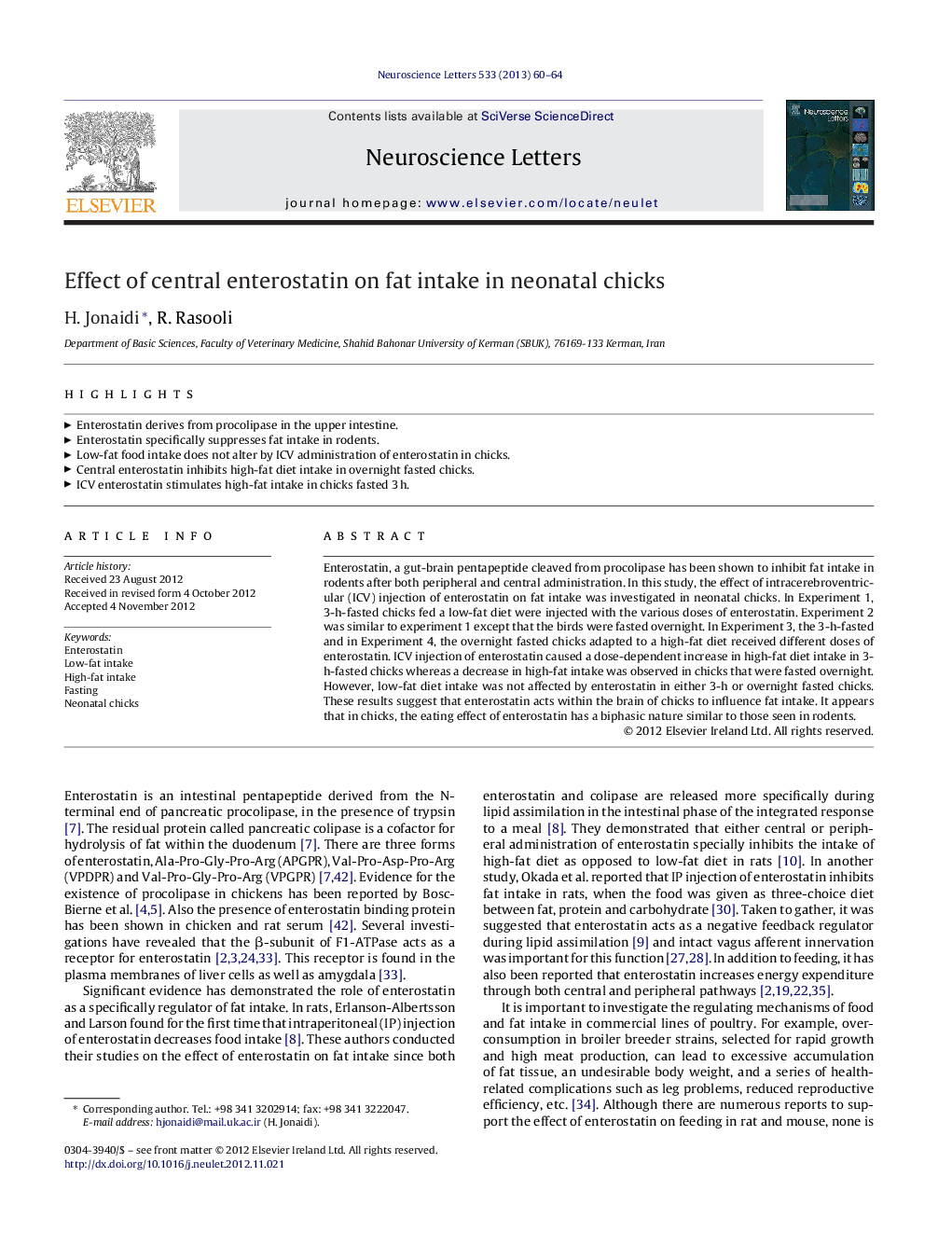| Article ID | Journal | Published Year | Pages | File Type |
|---|---|---|---|---|
| 6283794 | Neuroscience Letters | 2013 | 5 Pages |
Enterostatin, a gut-brain pentapeptide cleaved from procolipase has been shown to inhibit fat intake in rodents after both peripheral and central administration. In this study, the effect of intracerebroventricular (ICV) injection of enterostatin on fat intake was investigated in neonatal chicks. In Experiment 1, 3-h-fasted chicks fed a low-fat diet were injected with the various doses of enterostatin. Experiment 2 was similar to experiment 1 except that the birds were fasted overnight. In Experiment 3, the 3-h-fasted and in Experiment 4, the overnight fasted chicks adapted to a high-fat diet received different doses of enterostatin. ICV injection of enterostatin caused a dose-dependent increase in high-fat diet intake in 3-h-fasted chicks whereas a decrease in high-fat intake was observed in chicks that were fasted overnight. However, low-fat diet intake was not affected by enterostatin in either 3-h or overnight fasted chicks. These results suggest that enterostatin acts within the brain of chicks to influence fat intake. It appears that in chicks, the eating effect of enterostatin has a biphasic nature similar to those seen in rodents.
⺠Enterostatin derives from procolipase in the upper intestine. ⺠Enterostatin specifically suppresses fat intake in rodents. ⺠Low-fat food intake does not alter by ICV administration of enterostatin in chicks. ⺠Central enterostatin inhibits high-fat diet intake in overnight fasted chicks. ⺠ICV enterostatin stimulates high-fat intake in chicks fasted 3 h.
